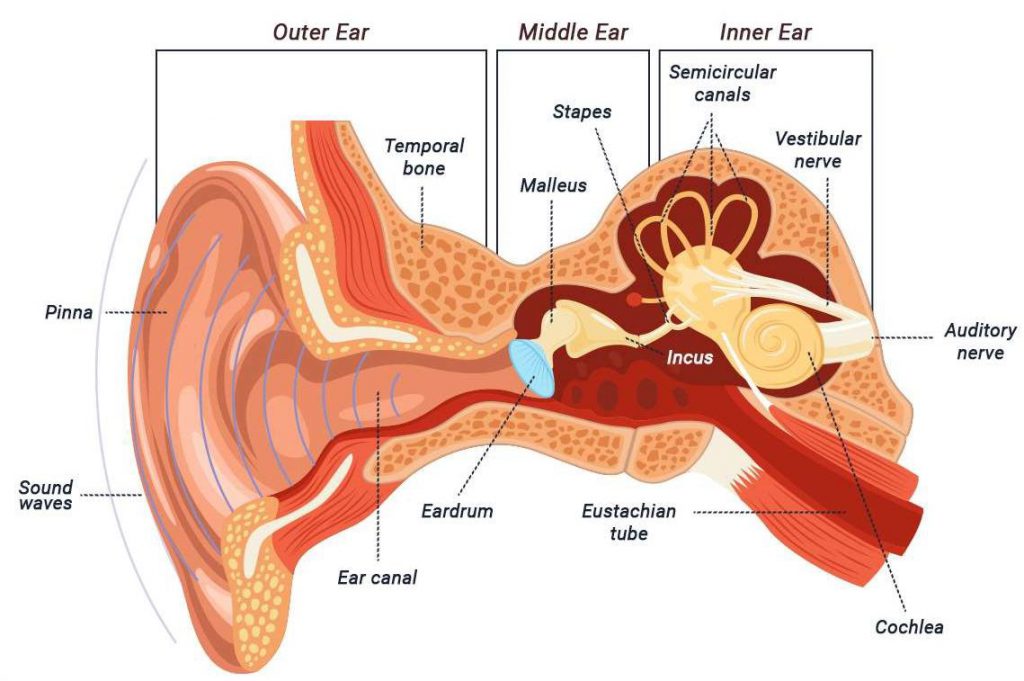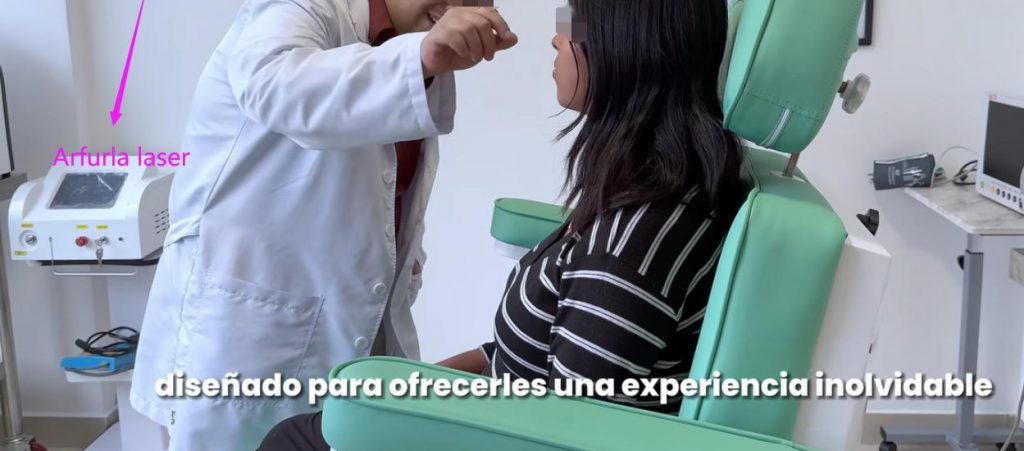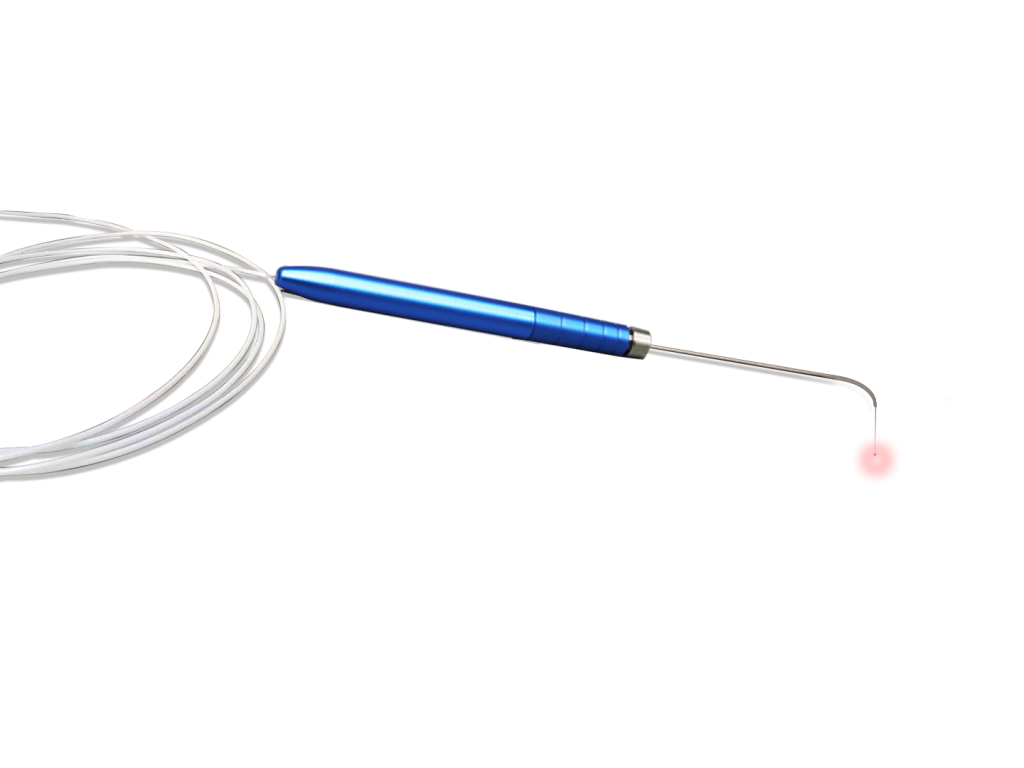Accessory Auricle
Tumors of the inner ear
Cholesteatoma surgery
Hemangioma
Myringotomy
Tympanitis
The wavelength of 980 nm has a high absorbance inhemoglobin whereas the 1470 nm has a high absorbance in water. The thermal penetration depth of the Arfurla laser therefore can be adjusted to the needs of the particular ENT application by just a finger tip. This allows safe and precise procedures to be performed close to delicate structures while protecting the surrounding tissue. Compared to the CO2 laser, this special wavelength set exhibits a significantly better hemostasis and prevents bleeding during the operation, even in hemorrhagic structures such as nasal polyps and hemangioma. With the Arfurla laser system, precise excisions, incisions and vaporization of hyperplastic and tumorous tissue can be performed effectively with almost no side effects.
This laser is especially suited for ENT works and finds application in various aspects of surgery in the ear, nose, larynx, neck, etc. With the introduction of diode ENT Laser, there has been a significant improvement in the quality of ENT surgery.

Our laser system uses an ultra-thin laser fiber with a core diameter of 400 μm, which is precisely applied to the inner ear structure through a contact method, significantly reducing the risk of accidental damage to surrounding tissue. The laser energy is delivered in short pulses and released only when it contacts the target tissue, ensuring that the energy is immediately absorbed at the tip of the fiber, thereby minimizing thermal damage. Laser aspiration is a minimally invasive, bloodless procedure, and its advantage is that the opening created by the laser in the eardrum can remain open for about three weeks, greatly reducing the healing time.


The application of laser in rhinology has significant advantages, which can achieve precise tissue control and reduce damage. It is particularly suitable for the treatment of diseases such as nasal polyps, sinusitis and nasal congestion. Endoscopic sinus surgery is a mature modern treatment method, but the bleeding of nasal mucosa often leads to unclear surgical field of view, affecting accuracy and prolonging postoperative recovery time, increasing the burden on doctors and patients. Therefore, protecting the surrounding mucosal tissue is the key to the success of the operation. The newly designed fiber tip technology can enter the turbinate tissue in a non-invasive way and perform interstitial ablation, thereby completely protecting the external mucosa. Laser technology has excellent hemostatic effect, ensures a clear surgical field of view and improves operation accuracy. It can reduce intraoperative bleeding and postoperative discomfort, promote rapid recovery and reduce the risk of complications. The high-precision characteristics effectively protect the surrounding healthy tissue, optimize the treatment effect, and provide patients with safer and more efficient treatment options.
In laryngeal surgery, the key goal is to avoid noticeable scarring and unnecessary tissue damage to preserve vocal function. Pulsed diode laser technology can significantly reduce the depth of thermal damage and achieve precise, controlled tissue vaporization and resection in sensitive areas while maximizing the protection of surrounding healthy tissue. Laser technology has significant advantages in laryngeal surgery and is suitable for indications such as tumor vaporization, papilloma, stenosis and vocal cord polyp removal. Compared with traditional surgery, laser surgery can reduce bleeding, relieve postoperative pain, shorten recovery time and reduce the risk of complications. Its high precision characteristics help protect healthy tissue and improve treatment outcomes while improving patient safety and comfort.

Laser surgery often requires no incisions, reducing the risk of scarring and complications. Mini-invasive surgery through flexible fiber optics.
Laser technology allows precise control over the beam, targeting diseased tissue while sparing healthy tissue.
Laser can simultaneously coagulate blood vessels, resulting in less bleeding and maintaining surgical visibility. Minimal bleeding.
With reduced trauma and bleeding, patients typically recover faster, experiencing less discomfort and shorter hospital stays.Short recovery period. Minimal thermal damage for excellent tissue margins.
ENT laser surgery is applicable to various conditions like sinusitis, tonsil issues, and vocal cord polyps, offering patients diverse treatment options. Less postoperative trouble


Accessory Auricle
Tumors of the inner ear
Cholesteatoma surgery
Hemangioma
Myringotomy
Tympanitis

Nasal polypectomy
Turbinate Reduction
Papilloma
Cysts and Mucoceles
Epistaxis
Sinus Surgery
Dacryocystorhinostomy
Epistaxis
Sinus Surgery
Dacryocystorhinostomy
Vocal Cord Polyps
Epiglottectomy
Strictures
Sinus Surgery
Uvulopalatoplasty
Glossectomy
